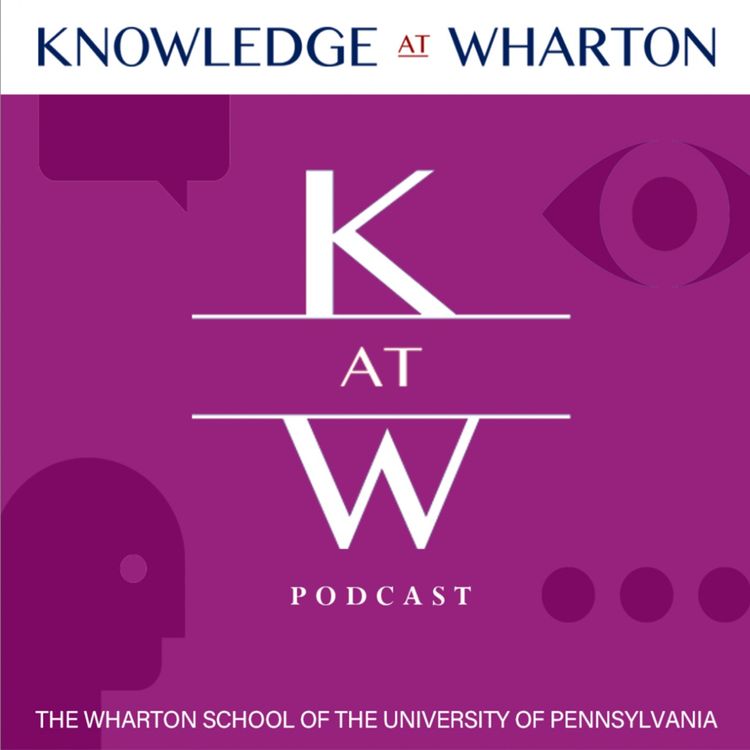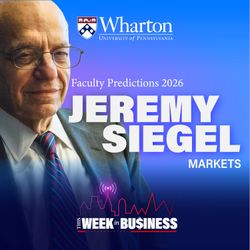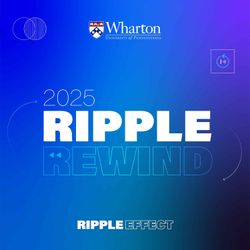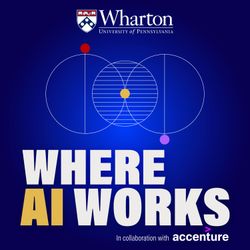Share

Knowledge at Wharton
Retirement and the Changing Workforce | Peter Cappelli
•
Companies can benefit from the experience and flexibility of older workers, says Wharton’s Peter Cappelli. What will it take for employers to stop age discrimination and change their approach to retirement? This Ripple Effect episode is part of a series on “Navigating Retirement.”
More episodes
View all episodes

This Week In Business Faculty Prediction Series: Assessing Inflation, Jobs, and Markets Heading Into 2026
10:13|Jeremy Siegel, Wharton Emeritus Professor of Finance and Senior Economist at WisdomTree, shares his perspective on the state of the U.S. economy, analyzing recent rate cuts, inflation progress, employment data, tariff uncertainty, and what they could mean for markets and growth in 2026.
Wharton Marketing Matters: Inside Time’s Best Inventions and Innovation Selection Process
31:20|Emma Barker Bonomo, Editorial Director at Time, joins Barbara & Americus to discuss how the magazine curates its annual Best Inventions list, highlighting the criteria, trends, and global significance behind the most impactful innovations of the year.
Wharton Marketing Matters: Best of 2025
01:05:00|This “Best of 2025” episode highlights insights from Shannon Shae Montoya, Global Head of B2B Marketing, Sponsorships, and Events at Yahoo; Toby Espinosa, Vice President of Ads at DoorDash; Adam Kornblum, Chief Creative Officer at L’Oréal; and Merill Hollander, founder of Fiametta, as they discuss how data-driven creativity, storytelling, and bold experimentation are shaping the future of marketing, retail media, beauty, and fine jewelry.
Wharton Moneyball: Best of 2025
01:00:39|In this “Best of 2025” compilation, Cade Massey, Eric Bradlow, Shane Jensen, and Adi Wyner revisit top moments with Google Sports Trends Fanalyst Annanya Raghavan, NFL veteran and Athletes.org founder Brandon Copeland, bestselling baseball biographer Jane Leavy, and ESPN analyst Dean Oliver, showcasing their insights on search-driven fan engagement, athlete empowerment, the future of baseball, and analytics’ growing influence across the NBA.
Ripple Effect: 2025 Ripple Rewind
31:47|In this special episode, listen to curated excerpts from this year’s Ripple Effect podcast, where Wharton professors discuss a range of trending business topics.
This Week In Business: Rethinking ACA Tax Credits and the Future of Health Coverage
10:02|Mark Pauly, Professor Emeritus of Healthcare Management at the Wharton School, examines Senator Bill Cassidy’s new health savings account–based proposal, evaluates its relationship to existing ACA tax credits, and offers broader insights into the persistent economic and political challenges of U.S. health care reform.
Wharton Marketing Matters: Navigating Marketing Shifts Amid AI, Inflation, and Cultural Change
29:06|Peter Adams, Senior Writer at Marketing Dive, joins Barbara Kahn to explore how economic bifurcation, evolving loyalty drivers, and rapid advances in AI are forcing marketers to rethink strategies, adapt to cultural moments, and navigate an increasingly complex industry landscape.
Wharton Moneyball: How Analytics Are Redefining Playoff Predictions Across College and Pro Sports
01:01:25|Eric Bradlow, Cade Massey, Shane Jensen, and Adi Wyner explore how advanced analytics are influencing modern sports—from reshaping baseball’s Gold Glove selections to refining NFL power rankings and playoff projections—while dissecting how the new 12-team College Football Playoff format heightens uncertainty and reshapes championship probabilities.
Where AI Works: Start Small, Think Big – Making AI Stick
25:05|Listen to a special episode from Where AI Works, a podcast hosted by Wharton faculty, sponsored by Accenture. The show dives into how artificial intelligence is transforming the way we live and work, with real-world stories and insights from leaders across industries.In this episode, Wharton's Peter Cappelli is joined by Vivian Sun, senior director for data and AI at Jabil, one of the world’s largest manufacturing companies. Together, they explore how Jabil started small with computer vision to improve quality control, built early wins that inspired broader adoption, and transformed the way teams work alongside AI across the enterprise.🎧 Search Where AI Works in your podcast app to discover more episodes, or click this link to follow along: Listen to more episodes